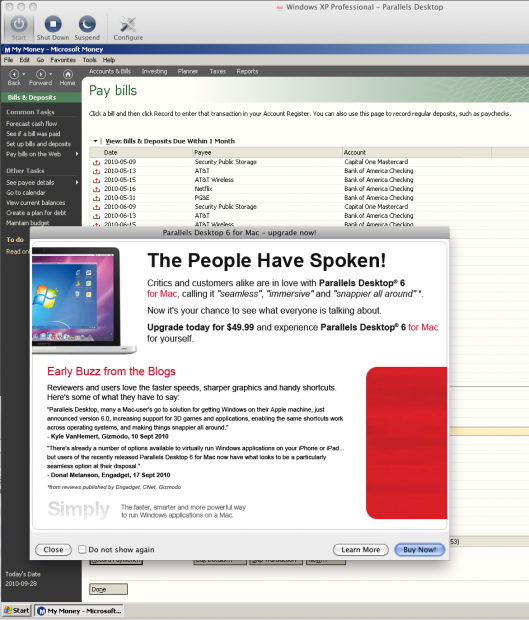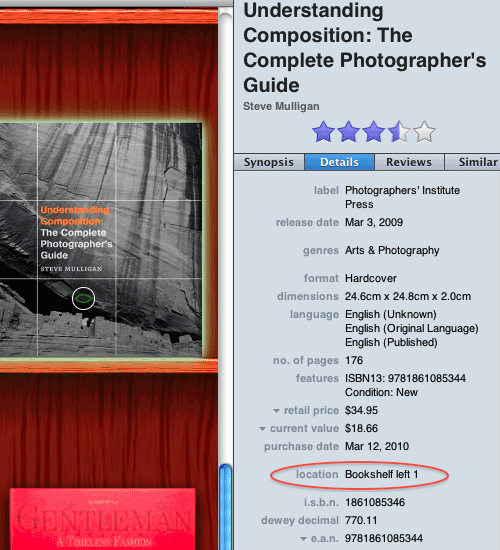I love my ISP
Not only do Webpass give me fast 45Mbps symmetrical access for $45/month, with no capricious restrictions or anticompetitive shenanigans, but they are also real mensches.


Not only do Webpass give me fast 45Mbps symmetrical access for $45/month, with no capricious restrictions or anticompetitive shenanigans, but they are also real mensches.

When you visit the Dell website, the first thing they force you to decide is whether you are a Home, Small Business or “Enterprise” business customer. At one point, the thin and light laptops were only available in the Enterprise section—perhaps plebs and small businesses are judged unworthy of appreciating the finer things in life, unlike the kleptocrats who run large corporations. We hoi polloi presumably should be content with our fate and make do with last year’s (decade’s?) technology.
When you search for products on Amazon, you have to select a “Department” to enable sorting by price. What do I care whether a microfiber cloth was filed under “Automotive” or “Electronics”? Taxonomies are inherently subjective, a fact librarians know well, but is surprisingly poorly understood outside the field.
Both cases illustrate what happens when a self-centered organization puts its internal structure and implementation details ahead of its customers.
Since you keep hitting me with these spammy popups no matter how many times I click on “Do not show again”, you leave me no choice but to switch to VirtualBox (much better software in any case, and less Windows integration means less chances a virus breaking out of the virtualized Windows ghetto.

Oh, and installing MacFuse without asking permission (unlike VMware Fusion): not cool.
Don’t let the door hit you on the way out.
In a triumph of hope over experience, I recently “upgraded” from Adobe CS3 Design Standard to CS5 Design Standard. I hardly ever use Photoshop any more since I started using Aperture and Lightroom (originally a Macromedia product, no matter what the lame “Adobe Photoshop Lightroom” face-saving branding may try to claim), the main driver for the purchase was actually InDesign CS5 and its ePub functions.
Of course, this is Adobe. Previous versions gratuitously included crud like a full Opera install (an older version, insecure, naturally) just to display a splash screen, or a full MySQL install to power Acrobat search. I never install Acrobat, of course, since that bloated and bug-ridden piece of garbage managed to steal the crown for most insecure software from Internet Explorer, no small feat.
Adobe does not want to confuse users with streamlined and efficient software, so they decided to include the mostly useless Growl on-screen notification program to nag you into registering. Increasing bloat and attack surface for malware is not a good idea, nor is interrupting creative people’s flow with interruptions. Of course, helping clients Get Things Done is a low priority at Adobe, as evidenced by their product choices.
You have to pity the Growl developers, whose reputation will suffer from guilt by association. I dislike interruptions and do not find it useful, but many people do and rave about it. They installed it by choice, not as a sneaky drive-by install for slimy marketing purposes.
Some more annoyances in CS5:
In other words, unlike Lightroom, CS5 is designed to be endured, not to delight.
Delicious Library is one of the slickest apps on the Mac, and won countless design accolades. Essentially, it is a database for your books, CDs and DVDs (version 2 added gadgets), and it looks glorious on a large monitor like mine. It seems like a novelty for collector-fondlers, and I myself unfairly dismissed it as a toy in 2008, but behind its playful user interface lies a remarkably powerful organizational tool, and the new 2.5 version has made major improvements in stability and performance after 2 years of relative neglect.

My wife and I are both avid readers—one of our common dreams is to someday have a home with a dedicated room for a library. We are squarely in the demographic for the Bookshelf porn website. Here is a montage of mine alone, not including the books I reluctantly had to consign to storage, or those in my parents’ basement back in France:
With well over 900 books, I needed a system to manage. At some point I discovered Delicious Library has a writeable location field in its database for every item, and you can create virtual shelves to organize your books. I literally have one DL shelf for each shelf in my bookshelves, one for each box in storage, and one for all the books I keep at work. This way, I can browse shelf by shelf or box by box, or conversely look up the location of a book I need.

You may think recording the location of each book would be a mind-numbing task, but Delicious Library makes it effortless. It can read ISBN bar codes using the iSight camera included in most Macs, but a better option is to use the Microvision RoV Bluetooth barcode scanner they sell and support. It is quite expensive at well over $200, specially compared to the inexpensive Symbol CS1504, but the convenience makes it well worth the price if you have a serious library to wrangle.
If you select a shelf on the left sidebar, then scan a barcode, the book is automatically added to the selected shelf. I filed a feature request with them in 2008 for precisely this, and I do not know when they added it, but it makes a world of difference. The scanner has a memory, so you can zip into an adjoining room, scan all the barcodes on a shelf, zip back and let the scanner pour the shelf’s inventory into DL. It even reads out the titles as they are added. Repeat the process and quite quickly you can compile an inventory of your entire library.

The search function in DL is somewhat primitive, but Smart bookshelves (similar to iTunes’ Smart playlists) help. I have Smart Bookshelves for:
Delicious Library tries hard to use cutting-edge functionality in OS X, which is why version 2 only supported Snow Leopard and later. It has a top-notch AppleScript implementation. I am no AppleScript guru, but I relatively easily wrote my own scripts to:
Thanks to the user interface, browsing books on the Mac is almost as fun as doing so on the bookshelves, and infinitely faster. Of course, this is true of most book catalog programs, including many fine free options available for Windows and Mac, but most others do it with less aplomb.